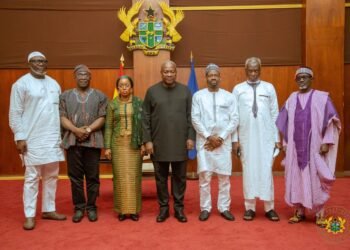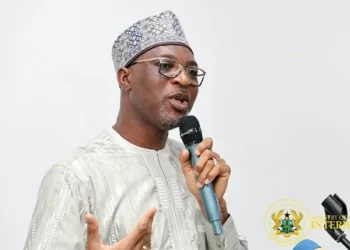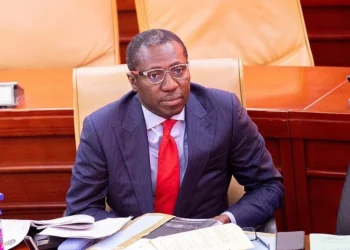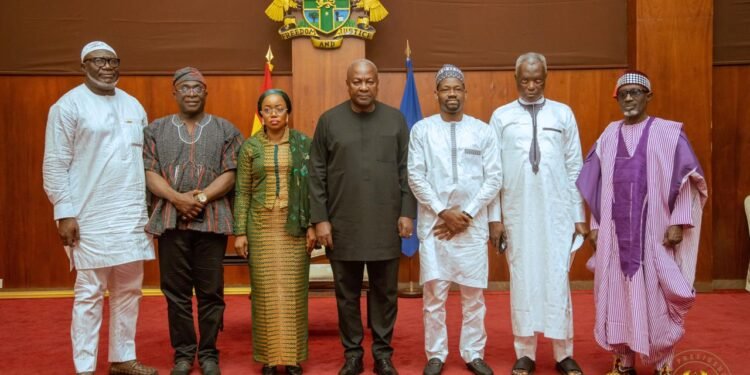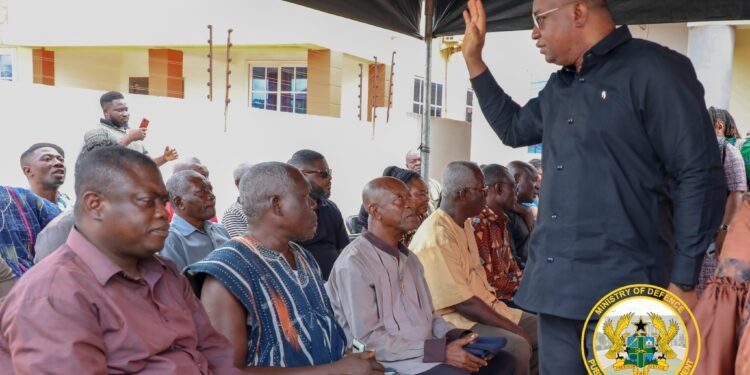Ghana’s ongoing power crisis has sparked fierce criticism from energy experts and political commentators, who are calling out Energy Minister John Jinapor for what they describe as poor planning, inconsistent policies, and failure to deliver on promises of a stable electricity supply.
Among the critics is Ishmael Agyekumhene, a former Board Member of the Public Utilities Regulatory Commission (PURC), who has strongly urged the Minister to stop offering excuses and take full responsibility for the worsening energy situation.
In a pointed rebuke, Mr. Agyekumhene questioned the Minister’s inaction nearly four months into his appointment.
“Telling us today that we have only two and a half days of liquid fuel? I could understand if this was immediately after he took office, but he’s had enough time to make arrangements. The Minister should stop giving excuses—it’s long enough for us to have secured the liquid fuel.”
Ishmael Agyekumhene
Mr. Agyekumhene acknowledged that technical setbacks, such as operational challenges at the Atuabo gas processing plant, can occur from time to time, but emphasized that such obstacles should have been anticipated and managed through better planning. “There’s no excuse when we don’t have the cash to buy fuel because we failed to plan adequately.”
His comments follow Minister Jinapor’s recent disclosure before Parliament’s Energy Committee that Ghana has just 2.6 days’ worth of liquid fuel remaining to power the country’s thermal plants.
The Ministry is reportedly scrambling to raise the necessary funds for fuel procurement to avoid a looming nationwide blackout.
However, Mr. Agyekumhene insisted the power crisis is not merely a result of fuel shortages. He contends it reflects deeper issues—structural inefficiencies, poor financial management, and chronic revenue leakage in the energy sector.

“The truth is, no one sells crude oil on credit. A single cargo costs about $50 million, and we don’t have the cash. Yet, if ECG were collecting money for power consumed, we wouldn’t be in this situation.
“When he was in opposition, the Minister kept saying we had no excess capacity. Now he admits there is, but the irony is we’re not even paying for power that’s already been produced—and we still owe for idle capacity.”
Ishmael Agyekumhene
To address the crisis meaningfully, Mr. Agyekumhene called on the government to prioritize investments in gas-based power generation, which is significantly more cost-effective than reliance on expensive liquid fuels.
He urged the government to build and maintain strategic reserves to buffer the nation against future supply shocks.
“Everyone managing the sector knows gas is cheaper. If there’s no gas, then at least we should have strategic reserves of liquid fuel—not just two days, but at least a month.”
Ishmael Agyekumhene
Stable Electricity Supply Urged Amid Power Crisis
Patrick Kwarteng Sarpong, a known supporter of the opposition New Patriotic Party (NPP), also added his voice to the growing criticism, dismissing claims by the Energy Minister that sabotage and illegal connections are responsible for the erratic electricity supply.
“There are no saboteurs anywhere,” Sarpong declared. He advised the Minister to focus on securing the needed funding to buy fuel and restore power. “Find money to buy fuel to power our generators to supply electricity to Ghanaians and stop the blame game.”

He further questioned the Minister’s logic in blaming illegal electricity connections, noting that such practices have existed for years and should not be scapegoated for the power crisis.
Sarpong warned of an imminent national power outage unless urgent steps are taken. “We have less than 3 days to experience a nationwide power outage because you have failed to find the cash to pay KarPower for the power.”
Reminding the Minister of his own lofty promises during the 2024 election campaign, Sarpong urged him to fulfill his mandate.
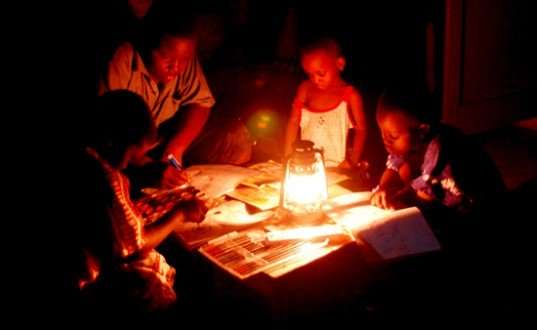
“You made so much noise when you were in opposition, told us you had the magic wand to solve our electricity challenges. Walk your talk, Mr. Minister. All we need is a stable power supply, just like you promised Ghanaians during the 2024 electioneering campaign. Fulfill your promise, please.”
Patrick Kwarteng Sarpong
The criticism comes in the wake of the Minister’s admission that the power sector currently needs GHC 1.1 billion to procure enough fuel to keep thermal plants running.
In a related move, he has warned that state agencies risk disconnection if they continue to default on electricity bill payments.
As pressure mounts, the Energy Ministry is facing increased calls for transparency, accountability, and urgency in tackling the power supply challenges that threaten to plunge parts of the country into prolonged blackouts.
READ ALSO: Starmer Eyes Return Hubs For Failed Asylum Seekers




